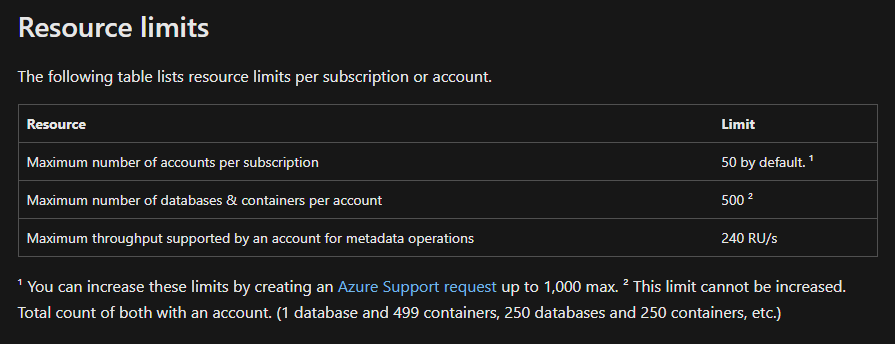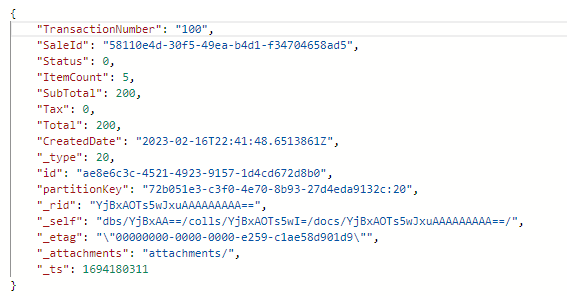Leveraging Azure Cosmos DB for Scalable and Secure Multi-Tenant POS Systems

Introduction
Did you know that 80% of retail sales still happen in brick-and-mortar stores? Yes, you read that right. Despite the surge in online shopping, Point of Sale (POS) systems are still the backbone of the retail industry. These systems are more than just transaction facilitators; they integrate inventory management, customer data, and analytics. However, the retail landscape is evolving, requiring more flexible, secure, and scalable multi-tenant POS systems. Enter Cosmos DB which is a Microsoft offering that provides robust, scalable, and multi-regional support for a variety of database models. In this blog, we'll explore how Cosmos DB can revolutionize multi-tenant POS systems to make them more efficient and scalable.
What is Multi-Tenancy?
Multi-tenancy is an architecture where a single software instance serves multiple tenants (customers). The architecture varies, including shared databases, shared schemas, and dedicated schemas. Salesforce and Shopify are classic examples of platforms employing multi-tenant architectures. The benefits include cost savings, simplified management, and scalability. Despite common myths, multi-tenancy does not inherently compromise data security or performance.
Why Databases Matter in Multi-Tenant Environments
Databases in POS systems manage transactional data, inventory, and customer information. In a multi-tenant environment, databases face the challenges of data isolation, scalability, and performance. When selecting a database for such a setting, consider factors like partitioning strategy, consistency level, and access control methods.
Introduction to Cosmos DB
Cosmos DB is a NoSQL database service from Microsoft. It offers multi-model API support, global distribution, auto-scaling, and several consistency models. Its unique features include built-in caching, robust security, and cost-efficiency.
Cosmos DB: Under The Hood
Cosmos DB's architecture is designed for global distribution and scalability. It provides a variety of consistency models, enabling you to balance between performance and data integrity. Its replication capabilities ensure your data is available across different geographic locations.
Key Challenges in Multi-Tenant POS Systems
Data Isolation
Poor data segregation in a multi-tenant POS could lead to data leakage or compliance issues. Cosmos DB provides robust data partitioning, ensuring each tenant's data is isolated. This however, is not always straightforward, there are multiple approaches you can take:
- Container per tenant
- Partition key per tenant
- Database per tenant
Microsoft has detailed documentation regarding Multitenancy and Cosmos DB that covers many multi tenant approaches many isolation models. It is important that you evaluate the harsh limits Microsoft has on your ability to create containers, resources, and database accounts.

Performance
Low latency is crucial in POS systems for real-time access to data. Cosmos DB provides ultra-low latency performance, thanks to its optimized indexing and caching mechanisms. It also offers multi-region support, ensuring your data is available across different geographic locations. With muti-region support, you can get 99.99% read / write availability.
Customization
Each tenant might require specific customizations. Cosmos DB's flexible schema accommodate these customizations.
Why Cosmos DB is a Game-Changer for Multi-Tenant POS
Data Partitioning and Isolation
Cosmos DB partitions can assist in data security and compliance across tenants. It allows for easy partitioning of data, ensuring each tenant’s data remains inaccessible to others. Our approach is to use the partition key per tenant model with a slight variation to using the data type to expand the storage capacity per tenant.

The image above illustrates how we can track a transaction for a tenant by using the tenant id + data type as the partition key. This allows us to scale the storage capacity per tenant by leveraging data type. This is a great approach for a multi tenant POS system that has a large number of transactions per tenant.
Data Modeling
Building a data model for a multi tenant POS system is a challenge. We have to consider the following:
- How many tenants will we have?
- How many transactions will each tenant have?
- How different are the transactions between tenants?
Most of the tenants already have a POS system in place that comes with it's own barcode style, transaction types, and other data types. It would be a challenge to build a data model that can handle all of these different types from systems that may have limited to no documentation. Cosmos DB, however, allows us to have a schema that can change per tenant. Our approach uses custom fields to store the data that is unique to each tenant. This allows us to have a single data model that can handle all of the different types of transactions.

Now that we have our data model we can start to build our data access layer We chose to use the Cosmos DB SDK along with the Azure Cosmos .NET Repository written by David Pine to access our data. The SDKs allow us to use LINQ to query our data. This makes it easy to build our queries and allows us to use the same code to access our data. In the event that we could not use LINQ, we used the Cosmos DB SQL API to query our data.
Robust Security
When creating a POS system, security is a top priority. Cosmos DB provides robust security features, including:
- Role-based access control (RBAC)
- Encryption at rest
- Azure Security Center integration
With those tools we can ensure that our data is secure and that we are meeting the compliance requirements of our customers.
Noisy Neighbor & Cost-Efficiency
When doing anything in the cloud regardless of platform it is impartitive that you watch for cost creep and understand you can make serious mistakes in provisioning that can cost thousands of dollars. Cosmos DB can become quite costly if you are not utilizing your provisioned RU/s. Luckily, Cosmos DB has the option to automatically scale based on your needs. For example, if you can provision 100 RU/s and have a maximum consumption of 1,000 RU/s which will allow you to only pay for 100 RU/s until you temporarily need more.
Since all tenants will share these RU/s the problem of having one very large tenant who is taking all of the resources and the other tenants can not use any. This is called the Noisy Neighbor Problem. To try and mitigate this and reduce the database cost per tenant we opted to do a few things:
- Maximize Point Reads
- Leverage Redis Cache
- Log expensive queries and always audit queries
By leveraging those techniques we have been able to reduce the RU/s per tenant and have not had any issues with larger tenants causing scale issues for smaller tenants.
Case Study: Consignment Helper

Introduction to the case study
Consignment Helper is a SaaS offering that allows seasonal consigment companies to have all of the tools they need to run a successful sale.
Results and key takeaways
Cosmos DB has allowed us to build a scalable and secure multi-tenant POS system that can handle the needs of our current and future cusomters. We have been able to reduce the cost per tenant by leveraging the techniques mentioned above. We have also been able to reduce the time it takes to build new features by using the Cosmos DB SDK and the Azure Cosmos .NET Repository. This has allowed us to focus on building features instead of worrying about how we are going to access our data.
Looking to learn more about Consignment Helper? We'll be sharing a case study soon, so stay tuned!
Conclusion
Understanding the potential of Cosmos DB is one thing—implementing it is another. That's where Envisioned Solution comes in. Our custom software development expertise can help you leverage the best features of Cosmos DB to build custom systems tailored to your unique business needs. From initial planning and analysis to development and deployment, our team will be with you every step of the way, ensuring a seamless and successful implementation.
So, why go it alone when you can have a trusted partner to guide you? With Envisioned Solution, you're not just getting a service; you're gaining a long-term partnership committed to your business growth and technological advancement. Reach out to us today for a comprehensive consultation on how we can make your multi-tenant POS vision a reality.
Thank you for reading, and we look forward to transforming your operations for the better.